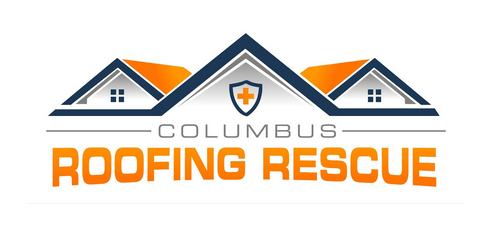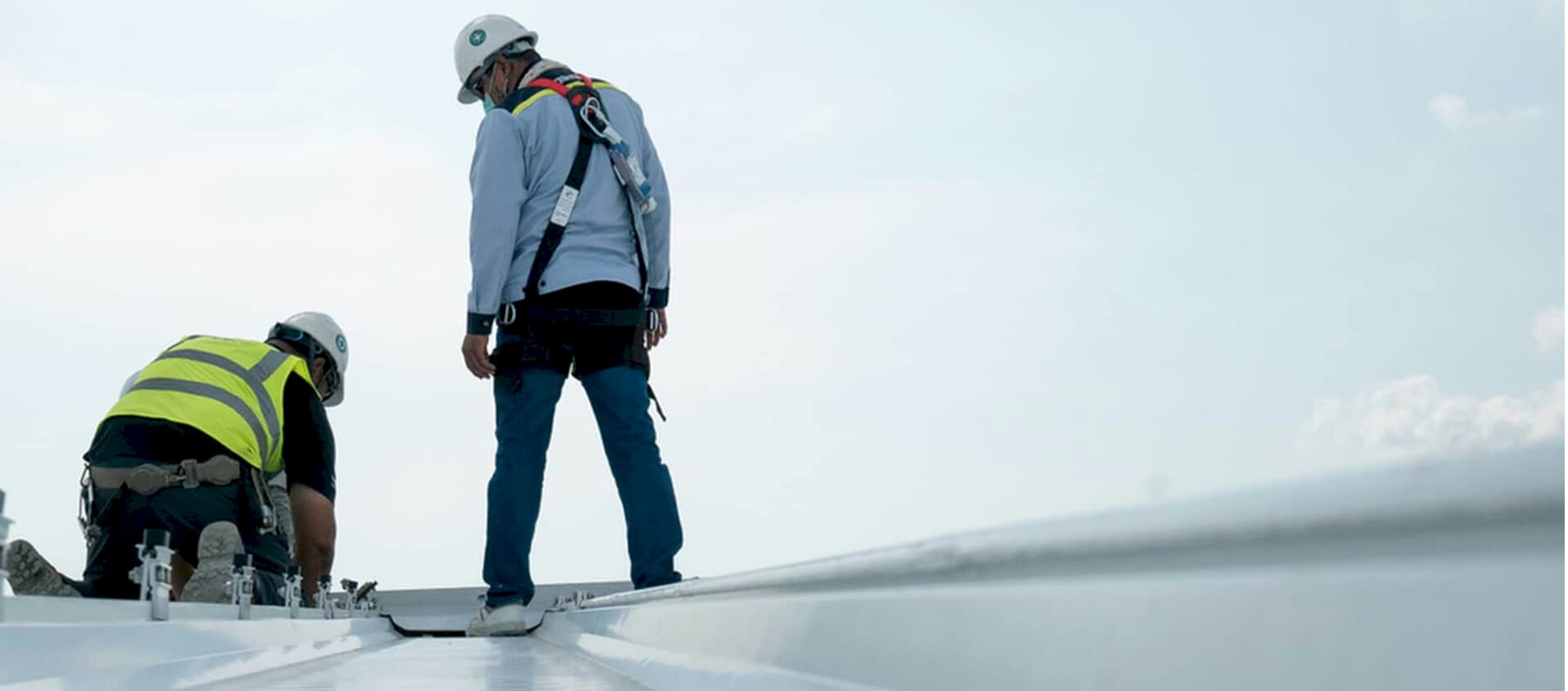Commercial Roofing
- Home
- Roofing
Columbus Commercial Roofing
As a business owner in Columbus, Ohio, you know how important keeping your commercial property in top shape is. One area that should never be overlooked is the roof. The roof protects not only your property but also your employees and customers. That’s why it’s essential to have regular commercial roofing inspections. In this article, I will explain the importance of commercial roofing inspections and why Columbus, Ohio, business owners trust our services. Importance of Commercial Roofing Inspections
Regular commercial roofing inspections are crucial for maintaining the integrity of your roof. A commercial roof must withstand harsh weather conditions, extreme temperatures, and other elements that can cause damage. Without proper maintenance and inspections, minor issues can quickly turn into significant problems that can impact the safety of your employees and customers.
By having a professional Columbus commercial roofing inspector inspect your roof, you can identify potential issues early on and address them before they become more severe. This will definitely save you money in the long run by avoiding costly repairs or even a full roof replacement.
Common Causes of Commercial Roofing Damage in Columbus Ohio
In Columbus, Ohio, commercial properties are exposed to a variety of weather conditions, including heavy rain, hail, snow, and wind. These weather conditions can cause severe damage to your commercial roof over time. Additionally, other factors such as poor installation, lack of maintenance, and aging can also contribute to roof damage.
Some of the most common types of commercial roofing damage in Columbus, Ohio, include leaks, punctures, cracks, and blistering. These issues can compromise the integrity of your roof and lead to more severe problems if left untreated.
The Benefits of Choosing a Local Commercial Roofing Inspector in Columbus Ohio
When it comes to Columbus commercial roofing inspections, choosing a local inspector is essential. A local inspector understands the unique weather conditions and factors that can impact commercial roofs in Columbus, Ohio. Additionally, a local inspector can provide prompt service and reliable support when you need it most.
At Columbus Roofing Rescue, we pride ourselves on being a local commercial roofing inspector in Columbus, Ohio. Our team has years of experience working with commercial properties in the area, and we understand the importance of keeping your roof in top shape.
Our Commercial Roofing Inspection Process
Our Columbus commercial roofing inspection process is thorough. We start by assessing the overall condition of your roof, looking for any signs of damage, wear, or aging. We then inspect the flashing, gutters, and downspouts to ensure they are functioning correctly.
After our initial assessment, we provide a detailed report outlining any issues we found and providing recommendations for repairs or maintenance. We work with you to develop a plan that fits your budget and schedule, ensuring your roof remains in top shape.
Case Studies: Successful Commercial Roofing Inspections in Columbus Ohio
We have worked with many Columbus, Ohio businesses to provide commercial roofing inspections and repairs. One example is a local manufacturing company that contacted us after experiencing several leaks in their roof. We conducted a thorough inspection and identified several issues, including damaged flashing and missing shingles.
We provided a detailed report outlining the necessary repairs and worked with the company to schedule the work. We completed the repairs quickly, minimizing disruptions to the company’s operations. Following the repairs, the company reported no further leaks, and their roof remains in excellent condition.
How Weather Impacts Commercial Roofing in Columbus Ohio
Weather is one of the biggest factors that can impact commercial roofing in Columbus, Ohio. Heavy rain, hail, and snow can cause significant damage to roofs, especially if they are already compromised due to aging or wear. Extreme temperatures can also cause problems, such as cracking or warping.
To protect your roof from weather-related damage, it’s essential to have regular inspections and maintenance. This can help identify issues early on and prevent them from becoming more severe.
Tips for Maintaining Your Commercial Roof in Columbus Ohio
In addition to regular inspections, there are several things you can do to maintain your commercial roof in Columbus, Ohio. First, ensure that any overhanging trees are trimmed back to prevent branches from falling on your roof. This can cause significant damage, especially during storms.
Second, clean your gutters and downspouts regularly to ensure they are functioning correctly. Clogged gutters will cause water to back up and damage your roof.
Finally, if you notice any issues with your roof, such as leaks or cracks, address them promptly. It can lead to more severe problems and costly repairs.
Frequently Asked Questions About Commercial Roofing Inspections in Columbus Ohio
How often should I have my business roof inspected?
Columbus Roofing Rescue recommends having your commercial roof inspected at least twice a year, preferably in the spring and fall.
How long does a commercial roofing inspection take?
The length of a commercial roofing inspection depends on the size and complexity of your roof. Generally, inspections take a few hours to complete.
What should I look for in a commercial roofing inspector?
When choosing a Columbus commercial roofing company, look for a local company with experience working with commercial properties in Columbus, Ohio. Additionally, ensure that the company is licensed, insured and offers comprehensive inspection services.
As a business owner in Columbus, Ohio, keeping your commercial property in top shape is essential. Regular commercial roofing inspections are crucial for maintaining your roof and preventing costly repairs or replacements.
We pride ourselves on providing comprehensive commercial roofing inspection services to businesses in Columbus, Ohio. Please get in touch with us today to schedule an inspection and ensure your roof remains in excellent condition.
The most common commercial roof style is a low-slope roof, also known as a flat roof. This type of roof has a slope of 2:12 or less, which rises 2 inches or less for every 12 inches of horizontal run. Low-slope roofs are popular for commercial buildings because they are cost-effective and allow for efficient use of space. They can be made of various materials, including single-ply membranes, built-up roofs, and modified bitumen.
Aggregate on a commercial roof refers to a layer of small stones or gravel that is applied on top of a layer of hot asphalt or other roofing material. The purpose of the aggregate is to protect the underlying roofing material from damage caused by UV radiation, weather, and foot traffic. Aggregate also helps to improve the fire resistance of the roof, as well as its overall durability and lifespan. It is commonly used on low-slope or flat commercial roofs, particularly those that experience heavy foot traffic or require additional protection against the elements.
Elastomer is a type of roofing material commonly used in commercial roofing. It is a synthetic rubber compound that is highly durable and can withstand some bad weather conditions. Elastomer roofing is often used on low-slope roofs because of its flexibility and ability to expand and contract with temperature changes. This makes it less likely to crack or break over time. Elastomer roofing can also be coated with reflective materials to increase energy efficiency. Overall, it is a popular choice for commercial roofing because of its durability, cost-effectiveness, and ease of installation.
Galvanized steel is is coated with a protective layer of zinc to prevent rusting. The zinc coating is applied to the steel through a process called galvanization, The steel is dipped into a bath of molten zinc. This process forms a metallurgic bond between the zinc and the steel, creating a barrier that is highly resistant to corrosion and rust. Galvanized steel is commonly used in outdoor construction projects such as roofing, fencing, and gutters, as well as in automotive and appliance manufacturing.
HVAC stands for Heating, Ventilation, and Air Conditioning. It refers to the technologies and systems used to control and regulate indoor temperature, humidity, and air quality in residential, commercial, and industrial buildings. HVAC systems work by controlling the flow and distribution of air, heating or cooling it as needed, and filtering out pollutants and other contaminants. Properly designed and maintained HVAC systems can improve energy efficiency, reduce operating costs, and create a more comfortable and healthy indoor environment.
An ice dam is a buildup of ice on the roof's edge that prevents melting snow from draining properly. This can cause water to back up under shingles or other roofing materials, leading to leaks and water damage. Ice dams are generally a problem in cold climates and can be particularly problematic for commercial roofs, where they can cause significant damage to insulation, roof decking, and other components. Proper insulation, ventilation, and maintenance can help prevent ice dams from forming on commercial roofs.

